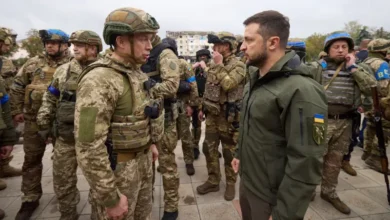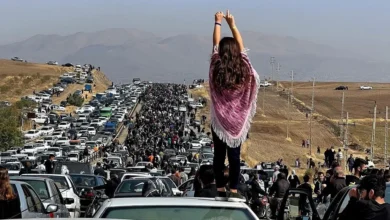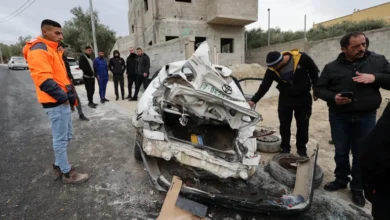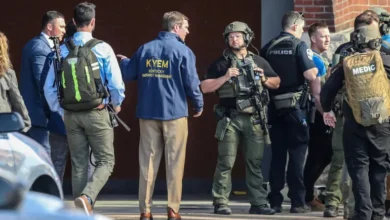‘There is no day after’: What US, Israel want for Gaza after Sinwar’s death
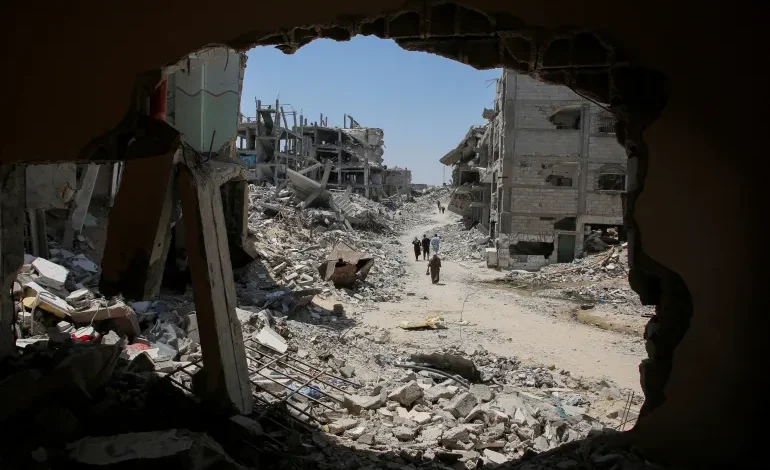
Within moments of the confirmation that Israeli forces had killed Hamas leader Yahya Sinwar, officials in the United States hailed the killing as an “opportunity” to turn the page on the war and move on to a “day after” for Gaza.
While offering no clear vision of what the future of the ravaged territory might look like, White House national security adviser, Jake Sullivan, described Sinwar’s killing on Thursday as a chance to “bring about a better day for the people of Gaza, the people of Israel, the people of the whole region”.
President Joe Biden and Vice President Kamala Harris echoed that assertion in their own statements.
Israeli leaders, however, had a drastically different message. Prime Minister Benjamin Netanyahu said the war is “not over” and pledged that Israeli forces would operate in Gaza for “years to come”.
But with no details about Washington’s vision for the future of Gaza and no indication that the Biden administration would meaningfully pressure Israel towards a political resolution to the conflict, Israel is likely to proceed with – if not intensify – its military onslaught, analysts say.
H A Hellyer, a geopolitical analyst, dismissed US talks of a “day after” in Gaza as “laughable”.
“There is no day after,” said Hellyer. “We all need to recognise that the Israelis have made it very clear that they’re not leaving Gaza, that the military presence will remain, so the idea of any sort of political horizon here is just very, very unrealistic.”
He added that while Washington is talking about the future of Gaza, Israel is pushing on with its occupation of the territory along with the West Bank, East Jerusalem, and Syria’s Golan Heights, while also invading Lebanon.
The real obstacle
While US officials spoke of Sinwar as an “obstacle removed” this week, it’s unclear how his killing will affect negotiations for a ceasefire deal that would see the release of Israeli captives in Gaza, which has failed to materialise for over a year.
Hamas has stressed that it backs an agreement that would lead to a permanent ceasefire, while Netanyahu has repeatedly pledged to continue the war until total victory.
“Sinwar was not the only obstacle to a ceasefire or indeed the main obstacle to a ceasefire. That was Netanyahu and that remains Netanyahu,” Matt Duss, executive vice president at the Center for International Policy, told Al Jazeera.
“What this really comes down to is: Will the Biden administration at long last be willing to put real pressure on Netanyahu both to end the war and to commit to a day after that is not simply permanent Israeli occupation?”
US officials say they want the war to end as quickly as possible. However, they have been unwilling to exercise any of the leverage available to them, and it is unclear whether Sinwar’s killing will change that.
“This is the constant missing piece, not just during the course of this war, but historically in the US management of the peace process and their policy toward Israel and Palestine,” said Duss.
“All along, consequences and costs are imposed on one side and one side only – the weaker side, the Palestinian side. The Israelis have complete impunity to do whatever they want. And that is part of what led us to this catastrophe.”
US officials have floated various post-war scenarios since the beginning of the war – including turning Gaza over to a “revitalised” Palestinian Authority – which have been flatly rejected by Israel. More recently, according to an Axios report, the US considered an Emirati plan for a transitional authority to be created in Gaza.
But US hopes for a ceasefire or a political resolution keep falling short amid continuing, unconditional support for Israel.


